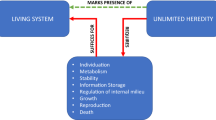Abstract
This commentary focuses on the importance of attention skills in the development of universal associative learning (UAL), and it explains why the centrality of attention in UAL presents a considerable difficulty for the UAL approach. Attentional abilities are not just developmentally related to UAL but are in fact explanatory (or even constitutive) of UAL. The main problem is that all the types of attention involved in UAL can be dissociated from consciousness. This means that while attention skills for UAL might be necessary for consciousness, they are not sufficient because they can all occur unconsciously. Thus, the possibility that UAL capacities might not be sufficient for consciousness cannot be eliminated, thereby challenging the key claim of the UAL approach.
Similar content being viewed by others
References
Block N (1995) On a Confusion About a Function of Consciousness. Behav Brain Sci 18(2):227–247
Fairweather A, Montemayor C (2017) Knowledge, dexterity, and attention: a theory of epistemic agency. Cambridge University Press, New York
Haladjian HH, Montemayor C (2015) On the evolution of conscious attention. Psychon Bull Rev 22(3):595–613
Kentridge R (2011) Attention without awareness: a brief review. In: Mole C, Smithies D, Wu W (eds) Attention: philosophical and psychological essays. Oxford University Press, New York, NY, pp 228–246
Montemayor C, Haladjian HH (2015) Consciousness, attention, and conscious attention. MIT Press, Cambridge
Siegel S (2017) The rationality of perception. Oxford University Press
Stoljar D (2019) In praise of poise. In: Pautz A, Stoljar D (eds) Blockheads! Essays on Ned Block’s Philosophy of Mind and Consciousness. MIT Press, Cambridge, pp 511–536
Author information
Authors and Affiliations
Corresponding author
Additional information
Publisher's Note
Springer Nature remains neutral with regard to jurisdictional claims in published maps and institutional affiliations.
Rights and permissions
About this article
Cite this article
Montemayor, C. Attention explains the transition to unlimited associative learning better than consciousness. Biol Philos 36, 20 (2021). https://doi.org/10.1007/s10539-021-09794-2
Received:
Accepted:
Published:
DOI: https://doi.org/10.1007/s10539-021-09794-2



